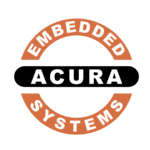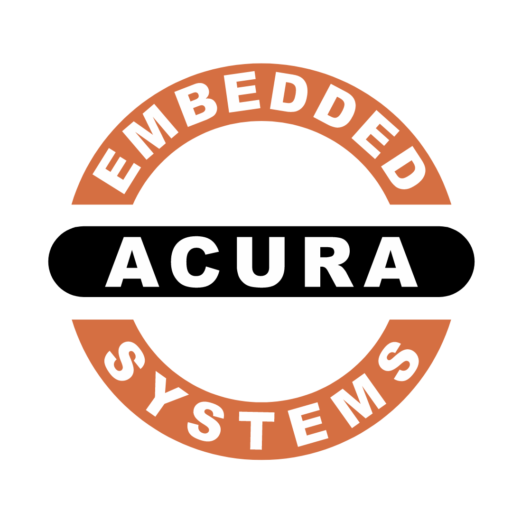If you work in an industrial production line or in automation 4.0, or if you are a machinery manufacturer, you will already know what an industrial PC is. You are probably already integrating them into the company: if you still want some further information or insights, this is the right article.

If, on the other hand, it is the first time you are confronted with these PCs or you were already evaluating them, here is a short quiz for you:
Is your work environment humid or dusty?
Are there any production residues, or large temperature variations?
Do you need a PC operating 24 hours a day?
Has the PC you use in production already suffered a failure?
Is the PC you use in production under powered compared to the use you should make of it?
If you answered yes to at least one of these questions, no problem. This article will explain in detail what are the characteristics of industrial computers and the advantages they bring to the company, so as to determine if they are right for you.
What is an industrial PC?
First, it is important to distinguish between personal computers and industrial computers. While traditional consumer PCs are mainly suitable for home / office use, industrial PCs are devices specifically designed for harsh environments, such as industrial production, automation 4.0, or in any case humid environments, with high temperature variations, or dusty environments. .
It goes without saying that the PC we use at home to watch Netflix or in the office to carry out daily tasks cannot have the same functionality as an industrial computer in an environment with dusts, production residues, or perhaps in a machine that must be operational. H24.
Many of the new customers who have turned to us have switched to industrial PCs because they used to use classic consumer computers even in their production environments, perhaps to save a few euros. In the end, however, they found themselves having to replace their PCs every 2/3 months because prolonged use or exposure to dust and humidity irreparably led to the malfunction and failure of the devices.
Result? Expenses to change computers 4/5 times a year, frequent production blocks, guaranteed stress and migraines, when with an industrial PC all these problems would not even have arisen.
Industrial computers, in fact, are PCs with hardware and technical characteristics designed and built to be operational 24/7 in these contexts. Here because.
What are the main features of an industrial pc?
The distinctive features of industrial PCs are mainly: no fans, industrial hardware, 24-hour operation, resistance to considerable temperature variations, resistance to vibrations, and reduced consumption.
Here they are in more detail.
- Fanless
In general, the utilization of mechanical components inside industrial PCs is 0. This means that most of these computers are fanless, meaning they have no cooling fans or ventilation holes to dissipate the heat generated by the processor. , except in the case of a specific customer request.
The heat is then dispersed through the case, making the PC totally silent and operational even in humid or dirty environments. This is precisely because there are no fans that attract moisture particles or residues that would infiltrate inside the PC causing overheating or malfunctions.
Two of the main advantages of industrial PCs, deriving from the absence of fans, are in fact the silence and high performance even in the presence of humidity and dust.
Returning to the previous example, our customers who previously used consumer PCs in these contexts now no longer have to change the computer inside their machinery every 3 months: the industrial PC they integrated has exceeded the expectations of even the most skeptical.
- Use of industrial hardware
Another distinctive feature of industrial computers is the type of hardware.
How many times has your consumer PC suffered overvoltages and consequently malfunctions, possibly damaging the entire machinery? And above all, how often have you had to reconfigure the PCs with the correct settings, if the hardware was subject to changes by the manufacturer?
With industrial PCs these problems are solved at the root: the industrial hardware they use, in fact, has a much longer lifecycle than that of consumer PCs: it is guaranteed for periods of 3-5 years up to 10 years, ensuring the availability of the same components with specific product lines and long-term support guarantee.
- Operation h24
Industrial PCs are widely used as controllers of production plants, within interactive totems or security systems, precisely because of their 24-hour operation, given by the components and industrial hardware used.
In particular, their hardware is designed to avoid overvoltages that would lead to the risk of machine downtime and loss of production data, in order to ensure continuous functionality even in demanding contexts or uses.
- Resistance to considerable variations in operating temperature
If installed outdoors or in any case exposed to significant temperature variations, traditional consumer PCs do not guarantee full operation. On the contrary, these conditions can lead to freezing of the fan or excessive overheating of the processor, with damage to the PC and malfunctions of the machinery or connected devices.
Thanks to the possibility of integrating the extended temperature range, on the other hand, industrial computers are able to operate at full performance even at + 85 ° C (if, for example, you have to integrate the PC into a machine exposed to the sun all day long. ) or at -40 ° C.
- Vibration resistance
An important property deriving from the absence of mechanical components and the use of aluminum houses is resistance to vibrations. This allows industrial computers to be used even in production environments subject to shocks or vibrations caused by machining. - Reduced consumption
24-hour operation does not necessarily mean exorbitant costs in the bill at the end of the month. Conversely, most industrial PCs have very low power consumption, generally between 65W and 120W.
In addition, industrial PCs can have an extended voltage range of 9-24 V, some up to 36V: this particularity makes these PCs fully suitable for use in the automotive sector, where voltage surges can seriously damage municipalities. Consumer PC.
Why choose industrial PCs?
We have seen that consumer PCs are devices designed for a completely different use from industrial computers.
Using the PC that we use in the office inside a totem exposed to heat and bad weather or in a machinery operating 24 hours a day would be like presuming / wanting to expect to race a motorcycle GP championship aboard a Graziella, and to be surprised if you don’t. Not even get to cross the finish line.
If you try to return to the questions at the beginning of this article, you will already have the answer on which PC is the best solution for your company.
To make a brief recap, industrial computers are the most suitable for installations in harsh environments, as thanks to the absence of fans they are able to guarantee 24/7 operation even in contexts rich in humidity, production residues, or exposed to considerable excursions. Thermal.
To conclude, another very important advantage of these PCs is the realization of customer request: by contacting certified manufacturers, it is possible to communicate the specific needs that the custom PC must satisfy during the analysis and design phase. Some examples? More serial ports if you need to connect devices with this output, RAID to protect data, or RAM expansion for more memory.
In this way you will not only have the certainty of having integrated a safe and high-performance device into the company, but also perfectly adequate to the business needs, avoiding finding yourself with an under powered PC that you would have to replace, wasting more time and money.

